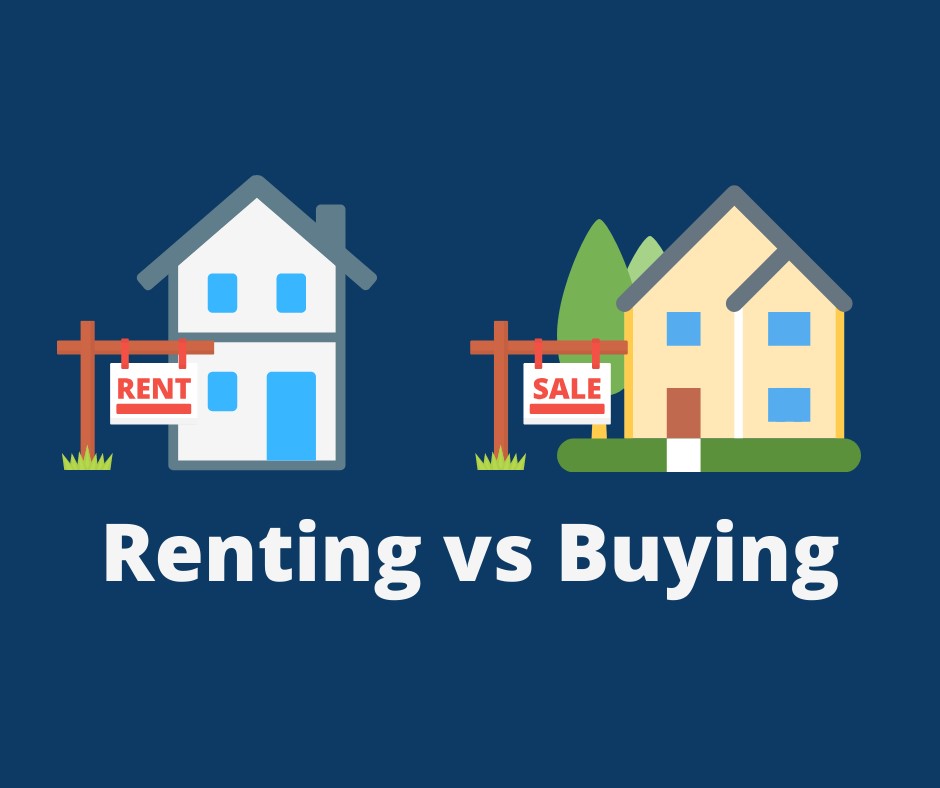One of the most important decisions individuals face when it comes to housing is whether to buy real estate or continue renting. Both options have their merits, and understanding the benefits and considerations associated with each is crucial. In this blog post, we’ll delve into the advantages and factors to consider when deciding between buying real estate and renting.
- Building Equity and Long-Term Investment:
One of the primary advantages of buying real estate is the opportunity to build equity. Unlike renting, where monthly payments only provide temporary occupancy, homeownership allows you to accumulate wealth over time. As you make mortgage payments, you gradually own a portion of the property, providing a potential long-term investment and a valuable asset.
- Stability and Control:
Buying real estate offers stability and control over your living situation. You have the freedom to customize and personalize your home to your preferences. Owning a property also provides a sense of stability, as you don’t have to worry about unexpected rent increases or the risk of having to move due to a landlord’s decisions. You have control over your space and the ability to create a lasting home for yourself and your family.
- Potential Tax Benefits:
Homeownership often comes with tax advantages. Mortgage interest and property tax payments may be tax-deductible, providing potential savings. Consulting with a tax professional can help you understand the specific tax benefits associated with homeownership in your area.
- Predictable Costs and Investment in the Future:
When renting, you are subject to the landlord’s decisions regarding rent increases, lease renewals, and property maintenance. Owning a home allows for more predictable costs over the long term. While homeownership comes with expenses such as mortgage payments, property taxes, insurance, and maintenance, you have greater control over these costs and can budget accordingly. Additionally, as property values appreciate over time, you may benefit from a potential return on your investment when it’s time to sell.
- Flexibility and Lower Upfront Costs:
Renting offers more flexibility, making it an attractive option for those who prioritize mobility. It requires lower upfront costs, usually involving a security deposit and sometimes the first and last month’s rent. This flexibility can be beneficial for individuals who frequently relocate due to work or prefer the freedom to explore different neighborhoods or cities without the commitment of homeownership.
- Consideration of Market Conditions:
Real estate markets can fluctuate, and buying a home involves market risk. It’s essential to research the local real estate market and analyze trends before making a purchase. However, in stable markets or areas experiencing growth, buying real estate can be a wise investment, especially when considering long-term appreciation potential.
Deciding between buying real estate and renting requires careful evaluation of your financial situation, long-term goals, and personal preferences. Buying a home offers the advantages of building equity, stability, and potential tax benefits, while renting provides flexibility and lower upfront costs. Consider factors such as financial readiness, market conditions, lifestyle preferences, and future plans before making a decision. Remember, there is no one-size-fits-all answer, and what matters most is finding the housing option that aligns with your current needs and long-term aspirations.


 Facebook
Facebook
 Twitter
Twitter
 Pinterest
Pinterest
 Copy Link
Copy Link


